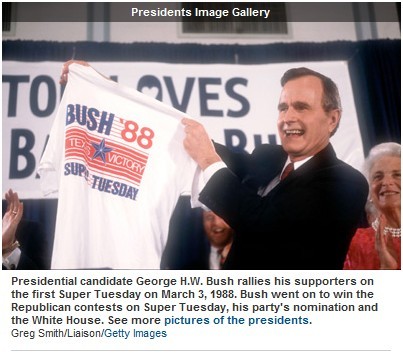Why is Super Tuesday so super?
USINFO | 2013-09-05 11:54

Candidates drool over it. Campaign managers turn gray from it. Pollsters try, but often fail, to predict it. It's the second-most important Tuesday in the American political process: It's Super Tuesday, the day when nearly half the states in the union hold political primaries, caucuses and conventions to determine their candidates for president.
While it's a political tradition now, Super Tuesday isn't all that old. The first one was held in 1988, after the Democratic National Committee worked with several Southern states interested in reasserting the importance of their role in producing a nomination for the party.
Presidents Image Gallery
The national and state committees of both major American political parties spend lots of the time between elections tweaking their plans for nominating contests, including those for Super Tuesday. Much of this is folly, however. Once it was released, Super Tuesday became a monster that no one is capable of taming.
When primaries and caucuses are spread out over the year, candidates have the opportunity to spend quality time in states getting to know the voters. In Michigan, they talk about bringing jobs back to the automotive industry. In Kansas, they talk about restructuring the Farm Bill. In Florida, they talk about changing America's image abroad to attract more international tourists. All of this amounts to what's known as retail politics: touching on issues of local importance rather than the issues that might win the general election.
This is one of the facets of a presidential campaign that Super Tuesday was designed to change. It would be much easier to run a successful presidential campaign if the candidates had the time to tell every voter in every state what he or she wanted to hear. And with primaries spread out, the candidates would have time to personally attend the fundraisers that replenish the coffers of their campaigns.
Share this page